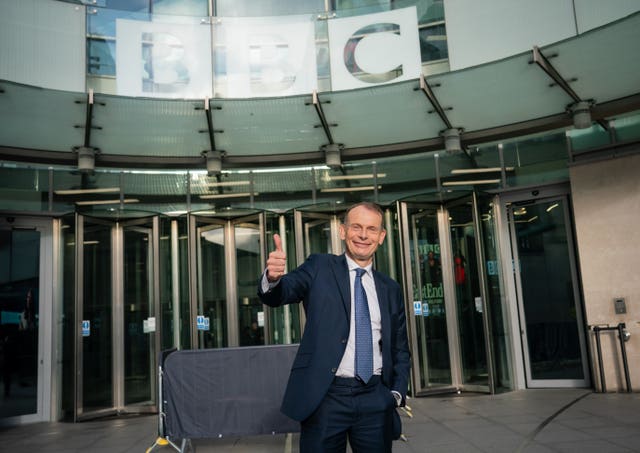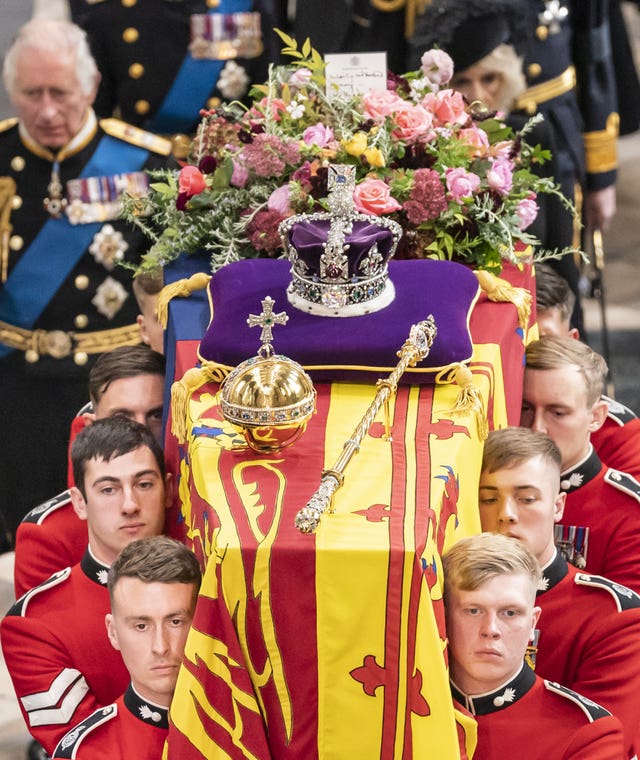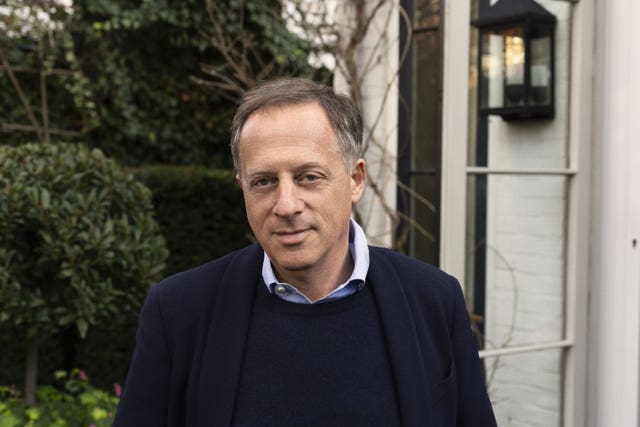Andrew Marr describes being held back by BBC impartiality as ‘absolutely insane’
Marr said he was ‘pro-BBC’ but it has made ‘some very big mistakes’.

Veteran broadcaster Andrew Marr said he found himself ‘self-censoring’ in front of family and friends after decades working at the BBC due to strict impartiality rules.
Marr was formerly the BBC political editor, joining the corporation in May 2000, before spending 16 years at the helm of his own Sunday morning show, signing off in December 2021.
On announcing he was leaving the corporation, Marr said he was “keen to get my own voice back” before joining LBC on Global to present his political show Tonight With Andrew Marr, as well as New Statesman as their political editor.

On Tuesday, he told the Radio Times that he wished he “had the chance” to call out “evident falsehoods” in politics more clearly during his time at the BBC, referencing when Boris Johnson claimed during the European referendum that Turkey was set to join the EU.
He told the Radio Times: “I never wanted to be a ranter or shouter, particularly. But I did want to speak more clearly and go to the kernel of the issues.
“Over time, I was self-censoring on air, and then self-censoring in front of family and friends, and even not saying what I really thought in the pub with friends.
“I just thought, ‘This is absolutely insane, this isn’t why I came into journalism at all’.”

The topic of BBC impartiality was recently at the helm of public debate when the broadcaster’s director-general Tim Davie suspended and reinstated Match Of The Day presenter Gary Lineker.
Lineker had tweeted comparing the language used to launch a new Government asylum seeker policy to that of 1930s Germany.
Following the impartiality fallout, Mr Davie announced a review into the BBC’s social media guidance, “with a particular focus on how it applies to freelancers outside news and current affairs” to be led by an independent expert.
Marr said if he were chairing the inquiry he’d conclude a small number of people “at the heart of BBC’s political offering” such as Huw Edwards, Nick Robinson and Laura Kuenssberg have to be “really careful about what they say and do” but described extending that level of scrutiny to sports presenters as “ridiculous”.
He said: “If you are Tim Davie, you can’t allow anyone to give the impression that they are bigger than (the director-general), bigger than the organisation.
“So I think it became very personal between them. But, for me, the fundamental issue is that there is a very small cadre of political staff to whom restrictions should apply.”

Marr also spoke about the late Queen’s BBC One obituary, which he had recorded the commentary for before leaving the BBC, but was replaced by the voice of broadcaster Kirsty Young when the film aired on September 8 following her death.
“That was upsetting,” he said.
“I’d been making and remaking it for 10 years or so, going in every few months. It was decided apparently in the BBC that it might ‘confuse or upset’ viewers if they heard my voice on it now I’d left the BBC, which seemed an odd argument.”
He later described himself as “pro-BBC”.
“I think it’s a very important organisation. But it makes some very big mistakes.”

His comments came before BBC chairman Richard Sharp resigned after a report was published that found he had broken the rules by failing to disclose that he played a role in getting then-prime minister Mr Johnson an £800,000 loan guarantee.
Marr also said he has “great sympathy” for BBC Question Time presenter Fiona Bruce for the social media backlash she faced following claims she had trivialised domestic violence during a discussion about Stanley Johnson, which Marr described it as a “horrible position to be in”.
Bruce later apologised for the “very real impact” she had and stepped back as an ambassador of domestic abuse charity Refuge.
The BBC has been contacted for comment.





